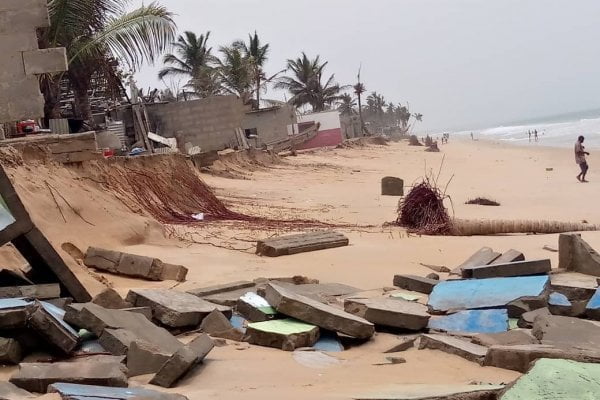The government is being encouraged to commit substantial resources to increase its ability to pre-empt and manage disasters in the country. Government is also being called on, to spell out in its 2020 Budget Statement and Financial Policy, increased funding to the Ghana Meteorological Agency (GMA) to help the agency operate effectively.
A Postgraduate Candidate with the Centre for Freshwater and Environmental Studies, Hammond Antwi Sarpong suggested these to government when he spoke to A1 Radio ahead of the reading of the 2020 Budget Statement and Financial Policy in Parliament tomorrow, 17th November, 2021.
Mr. Sarpong mentioned that the government’s paltry allocation of 2 percent of the national budget to deal with disasters is inadequate; particularly as a third is used to compensate and make victims of disasters whole.
“Although it remains unclear the exact budgetary allocation for disaster prevention and management, less than 2.0% of the national budget is said to go into disaster risk reduction programmes and projects, of which over one-third goes into post-disaster activities [response and relief and reconstruction and rehabilitation].
“In the wake of the upcoming budgetary reading by the Minister of Finance, a conscious approach to increase climate change finance is expected. For instance, all financial commitment required to expedite the establishment of the National Disaster Fund provided for under the NADMO Act 2016 (Act 927) to deal with national disasters should be spelt out in the budget. Also, funding to the Ghana Meteorological Agency (GMA) to enhance its core mandate of providing efficient and reliable meteorological information is also expected,” he said.
Mr. Antwi expressed grave concern about rising cases of climate-related disasters; citing the recent tidal-wave disaster with the Ketu South enclave. He said if government does not deliberately commit resources to addressing the concerns, the situation could be dire.
“Ghana’s disaster profile has been getting dangerous, with over 80% of these disasters considered climate-related. With climate change, the frequency and intensity of extreme events such as floods, tidal waves, drought and wildfires will increase and leave a devastating print on agriculture, water resources, health especially. In the just-ended week, the National Disaster Management Organisation (NADMO) reported that more than 200 homes had been destroyed by the high tides that swept through some communities in the Volta Region”.
“The prevalence of tidal waves coupled with heavy rains and the annual water spillage from the Bagre Dam in Burkina Faso causes enormous damages to lives and property, yet disaster prevention and adaptation needed to build resilience have not been adequate. Obviously, substantial investment and budgetary allocation are required to enable various institutions like NADMO, the Interior Ministry, MMDA’s and public and private organizations to raise public awareness and initiate programmes and projects to help improve mitigation actions and build resilience,” he said.
A1Radioonline.com|101.1MHz| Mark Kwasi Ahumah Smith|Ghana



